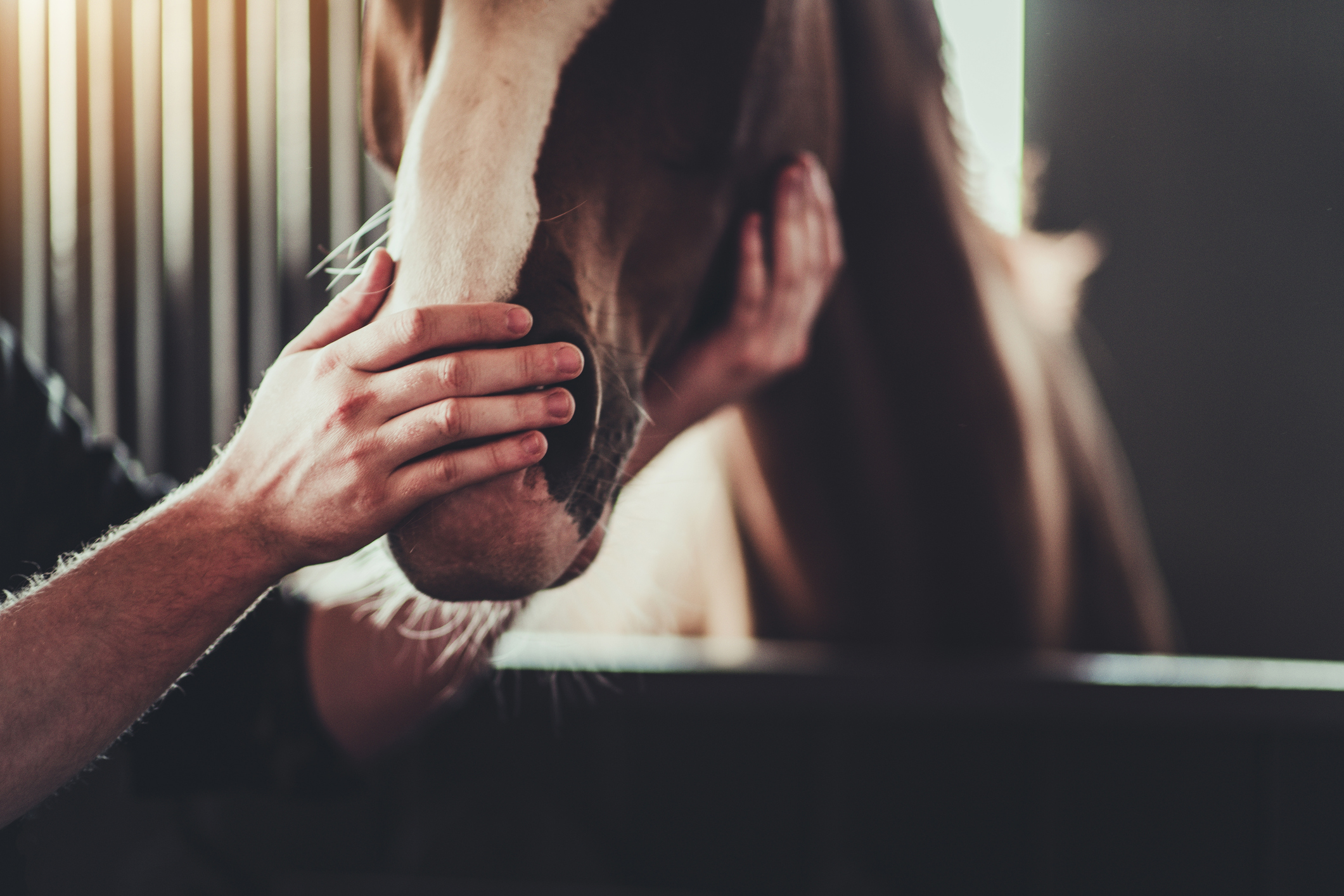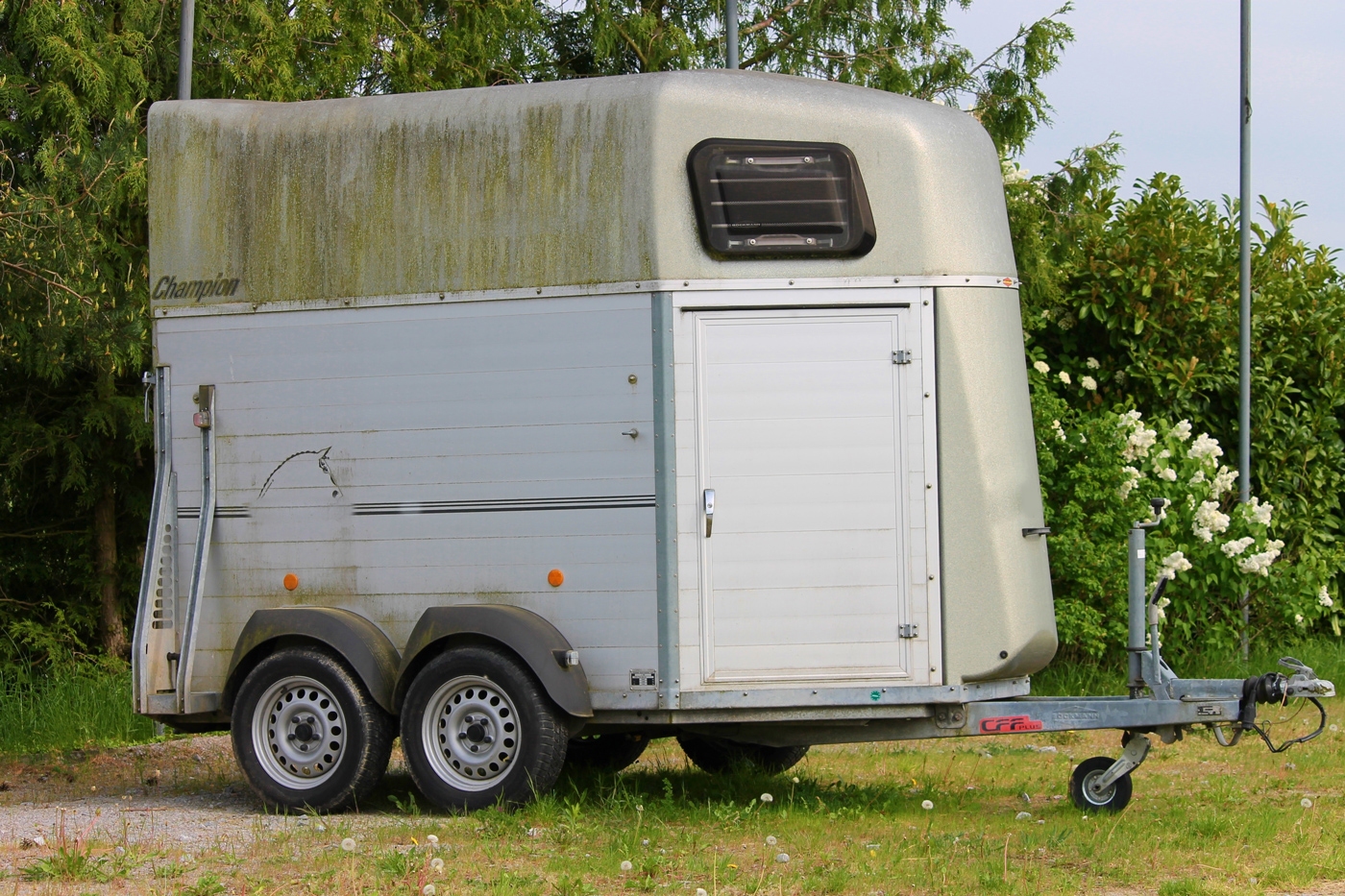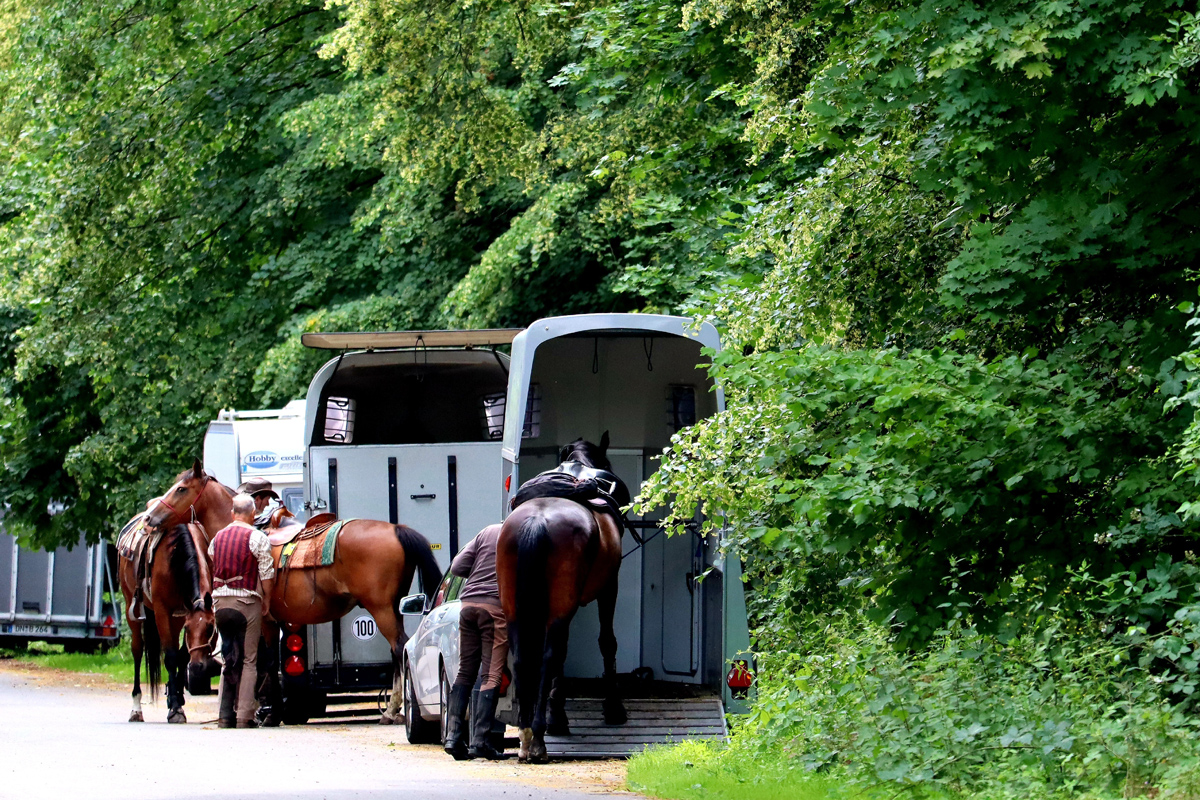Autumn 2020 sees the introduction of a law aimed at reducing horse theft: compulsory microchipping.
So how does microchipping protect your beloved horse, pony or donkey from the attention of thieves? And what other measures can you take to keep your equine safe and secure?
Read on for our top tips for stopping this surprisingly common crime, covering topics such as yard security, freeze-marking and horsebox insurance.
-
Get your horse microchipped
Microchipping your horses protects them by making it far harder for thieves to sell animals on. It also makes it easier to reunite you with your horse if it is stolen – remember to keep your contact details updated!
From 1st October 2020, horse owners whose animals are not microchipped and registered on the Central Equine Database could face a fine from their local authority.
As a responsible owner, you have probably already ensured your equines have undergone the simple procedure. If not, speak to your vet immediately.
Reminding owners of the upcoming legal changes, chief veterinary officer Christine Middlemiss said: “As we have seen with cats and dogs, mandatory microchipping is a hugely important step forward in the speedy identification of abandoned or stolen animals.
“Microchipping will not only help the police and local authorities, but also support the UK’s efforts to improve traceability and ensure we have better control over any disease outbreaks. This new legislation will also ensure that irresponsible owners are rightly held accountable for any low standards of welfare.”

-
Keep your horse passport safe
Horses are also obliged to have passports – even if they never leave their fields.
If you want to sell or export your equine, you’ll need to present a valid passport. So keeping it safe from thieves will help protect your horse.
The passport contains details of your animal’s markings, helping the police identify any animals that they suspect have been stolen.
-
Take some good photos of your horse
Again, this will help police identify your horse or pony. Remember to include both winter and summer photos, and choose a few different angles.
-
Keep your horse in a safe place
When your horse is outside, make sure all fences are solid and gates are locked. Remember that gates can be lifted off their hinges, so put padlocks on both sides of the gate.
It’s a good idea to install CCTV, a burglar alarm and security lights at your stables or yard, too.
-
Make sure transport is secure
Even if your horse is kept in the stables equivalent of Fort Knox, your transport can be your weakest link.
Horseboxes are relatively easy for thieves to break into. They can be driven long distances in a short space of time, and it’s easy for criminals to change the way they look.
Wheel clamps make it harder for thieves to drive your horsebox away. Postcode marking can help to reunite you with your horsebox if it is stolen.
It’s always wise to consider security when choosing which horsebox to buy. Horsebox insurance arranged through Equesure will help to protect your investment.

-
Form a Horsewatch group
If there are other horses kept nearby, you and their owners can agree to look out for one another.
Report any signs of suspicious behaviour: horse thieves will often plan their operations for weeks, so keep an eye out for unexpected people or vehicles near your yard, or any signs that your security has been tampered with.
If your horse is stolen, report it to the UK Horsewatch Alliance as soon as possible so that other groups around the country are alerted. The Stolen Horse Register contains details of equines currently reported stolen in the UK.
-
Remove head collars
Horses wearing collars are easier to catch and lead away. Don’t make thieves’ task simpler for them – remove head collars and put them away after use.
-
Freeze-mark your horse
You can permanently mark your horse with a unique code known as a freeze-mark. The task is carried out by trained operators using chilled irons, and won’t hurt your animal.
It’s most effective on dark-coated horses as the code shows up as white hairs. As it’s a visible identifier, it’s a good deterrent to thieves.
-
Take care with loans
Horse thefts can take place within the equine community. So don’t just loan your horse to someone without a written agreement, even if you think you know them well.
You can download a horse loan template from the British Horse Society. Get your agreement checked by a legal advisor.
Remember also to take care when transporting your animal to its temporary home. If thieves know your horse is on the move, they could choose the journey as the time to strike.
Horsebox insurance will cover your vehicle for theft, depending on the policy you choose.

-
Act fast if your horse is stolen
If you find your horse has been stolen, you’ll want to do all you can to prevent it being transported long distances or even abroad. Horse thieves are well organised, and will have an escape plan sorted long before they approach your yard.
Call the police, your local Horsewatch coordinator, and your horse passport and microchipping company.
If your horse is freeze-marked, the company that carried out the procedure can contact horse sales and slaughterhouses with your animal’s unique code. If not, you can phone these places yourself with a detailed description.
You should also contact your insurance company, who may help meet your expenses, depending on your policy.
-
Protecting your horse from thieves is no easy matter. Fortunately, Equesure is on your side.
We have more than 60 years’ experience of arranging different types of horse and horsebox insurance to cover your animal, vehicle and riders.
Horsebox insurance covers all types of horseboxes, from 3.5 tonnes up to large HGVs. Vehicles with a value of up to £750,000 can be covered.
Policies include Comprehensive; Third Party, Fire and Theft; and Third Party only cover.
Get a quick quote today.
Policy benefits, features and discounts offered may very between insurance schemes or cover selected and are subject to underwriting criteria. Information contained within this article is accurate at the time of publishing but may be subject to change.






